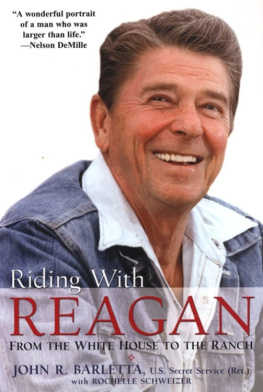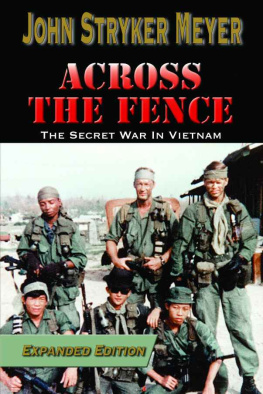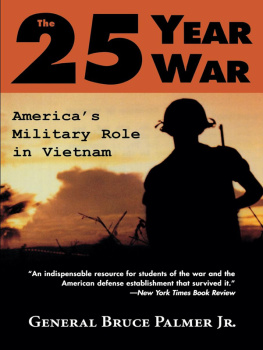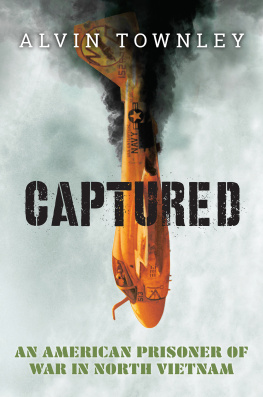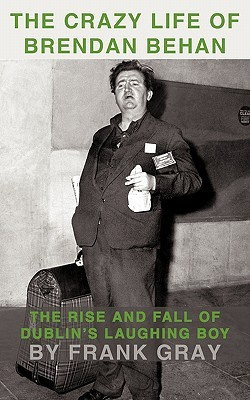Oliver L. North - Under Fire: An American Story
Here you can read online Oliver L. North - Under Fire: An American Story full text of the book (entire story) in english for free. Download pdf and epub, get meaning, cover and reviews about this ebook. year: 1993, publisher: HarperCollins Publishers, genre: Art. Description of the work, (preface) as well as reviews are available. Best literature library LitArk.com created for fans of good reading and offers a wide selection of genres:
Romance novel
Science fiction
Adventure
Detective
Science
History
Home and family
Prose
Art
Politics
Computer
Non-fiction
Religion
Business
Children
Humor
Choose a favorite category and find really read worthwhile books. Enjoy immersion in the world of imagination, feel the emotions of the characters or learn something new for yourself, make an fascinating discovery.
- Book:Under Fire: An American Story
- Author:
- Publisher:HarperCollins Publishers
- Genre:
- Year:1993
- Rating:5 / 5
- Favourites:Add to favourites
- Your mark:
- 100
- 1
- 2
- 3
- 4
- 5
Under Fire: An American Story: summary, description and annotation
We offer to read an annotation, description, summary or preface (depends on what the author of the book "Under Fire: An American Story" wrote himself). If you haven't found the necessary information about the book — write in the comments, we will try to find it.
Under Fire: An American Story — read online for free the complete book (whole text) full work
Below is the text of the book, divided by pages. System saving the place of the last page read, allows you to conveniently read the book "Under Fire: An American Story" online for free, without having to search again every time where you left off. Put a bookmark, and you can go to the page where you finished reading at any time.
Font size:
Interval:
Bookmark:
UNDER FIRE
by
Oliver L. North
HarperCollins Publishers
Zondervan Press
For information address HarperCollins Publishers 10 East 53rd Street
New York, NY 10022
ISBN 0-06-018334-9
special challenge.To avoid any possibility of leaks along the way, my publishers decided to treat this book as a covert operation.
To complete it, William Novak and I worked together by phone, by fax, and during a series of long meetings in a hotel room at Dulles International Airport.Just about every Monday, Bill would fly in with his laptop computer and book a ground-floor room with a back door opening onto the parking lot.Once he was settled, I would surreptitiously drive over to meet him.We always ordered lunch and dinner from room service, and when the waiter arrived with our meals, I hid in the bathroom.The poor guy must have concluded that this strange Mr. Novak, who always seemed to end up in the same room, was entertaining an imaginary friend.
The work was hard, but my sessions with Bill were both productive and fun.I appreciated his thoughtful attention to detail, his insightful questions, and perhaps most of all, his fine sense of humor.
I'm also grateful to Linda Novak, who put up with our hectic schedule, offered many helpful suggestions, and even managed to produce a baby while her husband and I were finishing this book.Who says there are no more miracles?
Special thanks must go to Nicole Seligman, one of my lawyers at the firm of Williams & Connolly, whose help was essential.
And there were many others who helped me get this story out of the courtrooms and into the word processor.
My mother waded through old family albums and stacks of letters, and sat down with Bill and me to recall tales of my youth that I had long since forgotten or tried to.My brothers, Jack and Tim, and our sister, Pat, pitched in with tidbits from our childhood.
Dick Bonneau, Mildred Johnson, Tom Gibbons, Bob Bowes, and Russ Robertson began contributing to this book more than thirty years ago, and helped me more than they can know.
A steadfast cadre from the Naval Academy supported me in ways too numerous to recount: Emerson Smith, Reid Olson, Bob Eisenbach, Bob Earl, and classmates Dewey Beliech, Jay Cohen, Mark Treanor, Phil Hough, and Tom Hayes.
From a long-ago war, several comrades-in-arms sought me out years later: Paul Goodwin, Bill Haskell, Richmond O'Neill, Bud Flowers, Art Vandervere, Eric Bowen, and John Rappuano.Of those who called themselves "Blue's Bastards," Wendell Thomas, Everett WhippIe, Ernie Tuten, Randy Herrod, and Jim Lehnert helped me survive battles past and present.
Generals Lew Wilson, Robert Barrow, P. X. Kelley, and Tom Morgan gave new meaning to the phrase "band of brothers," as Marines like to call themselves.So, too, did Brigadier General Mike Sheridan, Lieutenant Colonel Pete Stenner, Major Gil Mackiin, and Colonels Jack Holley and Larry Weeks.They were, in every sense of the phrase, Semper Fidelis.
When I left a quarter century of military service behind and started to hack my way into the civilian jungle, there were a handful of local guides who kept me on the path: Harry Rl,odes and Bernie Swain of the Washington Speaker's Bureau; Ben Elliott, who helped me behind the scenes; Duane Ward, who got me to where I was supposed to be; and Jerry Dimenna and Dave Valinskl, who kept me alive in the process.
This book could not have been finished without the help of Lieutenant General Ed Bronars and his wife, Dot, and Major General John Grinalds and his wife, Norwood.The Reverend Brian Cox helped me examine my Christian faith with clear eyes and a better understanding of how He is glorified when we persevere in adversity.And Thad Heath showed me how to live that kind of life.
I would have liked to thank David Jacobsen, Andy Messing, Ellen Garwood, and Ken deGraffenreid fiom my days at the NSC, and Joe Fernandez, Dewey Clarridge, George Cave, and several others from the CIA.But if I did, they would surely suffer for it.
Foreward
For better or worse, most people's lives seem to turn out rather differently from what they had expected.Certainly mine has.When I first signed on with the Marine Corps in 1961, I never dreamed that I would ever serve in the upper echelons of government.And I surely never imagined that I would one day find myself at the center of a raging political controversy of historic proportions.
This book is my personal story.I will leave to others the task of producing the definitive history of Irancontra-assuming that's even possible.The congressional investigators filled many volumes with reports and testimony, but I doubt that any one individual could possibly know the whole story.I was right in the middle of these events, and there are still things I don't know.
Although I refer often to "Irancontra" in these pages, that phrase is really a misnomer.To be precise, "Irancontra" covers five very different secret operations that were carried out by the Reagan administration in the mid-1980s.One of these was an attempt to develop an opening to the revolutionary government of Iran, an initiative that included the sale of arms to the Iranians, and a partially successful attempt to gain the release of the American hostages in Beirut.The other operation was a concerted effort to maintain American support for the Nicaraguan resistance after the United States Congress had forced the CIA to abandon the contras.These five projects were eventually linked by a financial connection, and also by the fact that several individuals, myself included, were involved in both operations.
In the chapters that follow, I portray certain episodes in my life that strike me as significant, and which surely affected my later activities at the National Security Concil.I know, for example, that my experiences as a platoon commander in Vietnam colored my feelings about Central America in general and the contras in particular.And the way I was raised, and the values that were imparted to me over the years, certainly influenced my attitude about the American hostages in Beirut.
I don't ask the reader to endorse everything I did or failed to do.
In the five years since I was fired, my detractors have often dramatized and exaggerated what really happenedeciate their endorsement, I am neither a saint nor a hero.I look back with pride on much of what we accomplished, but I also did things that I came to regret.
Although most of the events I describe took place within the past decade, the world began to change dramatically during the late 1980s.
Most of Eastern Europe has now embraced the ideals of freedom and democracy, and Communism has shown itself to be the fatally flawed system that Ronald Reagan always insisted it was.I remember watching on television as the Berlin Wall came down.I had tears in my eyes, and Dornin, our youngest daughter, ran upstairs to say, "Mom, what's wrong with Daddy?"
Daddy was fine, of course; I was just overwhelmed by the moment.
While I had known that these changes would come, I didn't really expect to witness them in my lifetime.I felt that way again in 1990, when, for the second time in eleven years, the people of Nicaragua rejected a brutal and corrupt regime.And yet again in August 1991, watching Boris Yeltsin stop a Soviet tank during the second Russian revolution.
During my five and a half years on the staff of the National Security Council, I spent much of my time working for the release of the American hostages held in Beirut.I have done some difficult things in my life, but nothing I've ever been involved with was as trying, or as painful, as this.Because of the obvious risks to the hostages and to certain individuals in other countries, most of this work was done in almost total secrecy.As I worked on this book and described some of these efforts, I prayed that by the time I was finished, all these men would be back with their families.
Next pageFont size:
Interval:
Bookmark:
Similar books «Under Fire: An American Story»
Look at similar books to Under Fire: An American Story. We have selected literature similar in name and meaning in the hope of providing readers with more options to find new, interesting, not yet read works.
Discussion, reviews of the book Under Fire: An American Story and just readers' own opinions. Leave your comments, write what you think about the work, its meaning or the main characters. Specify what exactly you liked and what you didn't like, and why you think so.

